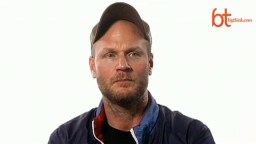
Latest Videos
All Stories
Every parent should send a dollar to J.K. Rowling.
▸
3 min
—
with
Augusten Burroughs agrees with Einstein: “There is no preferred point of view in the universe”
▸
10 min
—
with
Augusten Burroughs does not possess the blessing of forgetfulness.
▸
6 min
—
with
Carson McCullers makes Augusten Burroughs’ A-list; Ernest Hemingway is overrated.
▸
4 min
—
with
The writer gives thanks to those who have made it easier to be gay today.
▸
2 min
—
with
Northerner by birth, Southerner by everything else?
▸
6 min
—
with
Garrett Oliver says Europeans have a mature relationship with alcohol.
▸
5 min
—
with
We deserve better beer than we are getting.
▸
2 min
—
with
Garrett Oliver on beer awards and hangovers.
▸
4 min
—
with
Of all the experiments, only a few become brewery staples.
▸
2 min
—
with
Why all breweries are in Brooklyn?
▸
5 min
—
with
Like wine, treat beer with the respect it deserves.
▸
7 min
—
with
For something so many people drink, so few know what beer is.
▸
4 min
—
with
Getting creative with the raw materials of beer.
▸
5 min
—
with
Americans don’t know what they’re missing.
▸
2 min
—
with
Should there be a boycott of the Olympics?
▸
9 min
—
with
Is China a security partner or security threat?
▸
3 min
—
with
How does domestic policy link to foreign policy?
▸
6 min
—
with
Nina Hachigian on the next American century.
▸
2 min
—
with
Public health, Schluger says, deals with populations, not individuals.
▸
2 min
—
with
What will we look like in 100 years?
▸
3 min
—
with
With the global population exploding, is there a limit to how much effort we should put into keeping everyone alive as long as possible?
▸
3 min
—
with
An allergy specialist, Schluger discusses why we seem to have more allergies than ever.
▸
3 min
—
with
Tuberculosis should not be a reason to keep people from immigrating to the United States, Schluger says.
▸
3 min
—
with





























